11 Foods That Clean Dogs Teeth [Healthy and Cheap]
Dental health is SUCH an important part of life, whether human or canine. Over 80% of dogs above the age of three have some degree of periodontal disease, and the likelihood severely increases over time as your beloved pooch ages.
Periodontal disease in dogs is an infection of the gums and other structures that support the teeth. It presents with signs like bad breath, swollen gums, and discolored tooth surfaces and can lead to pain or difficulty in eating for your pet. If left untreated, it can even cause the infection to spread to the organs and become dangerous.
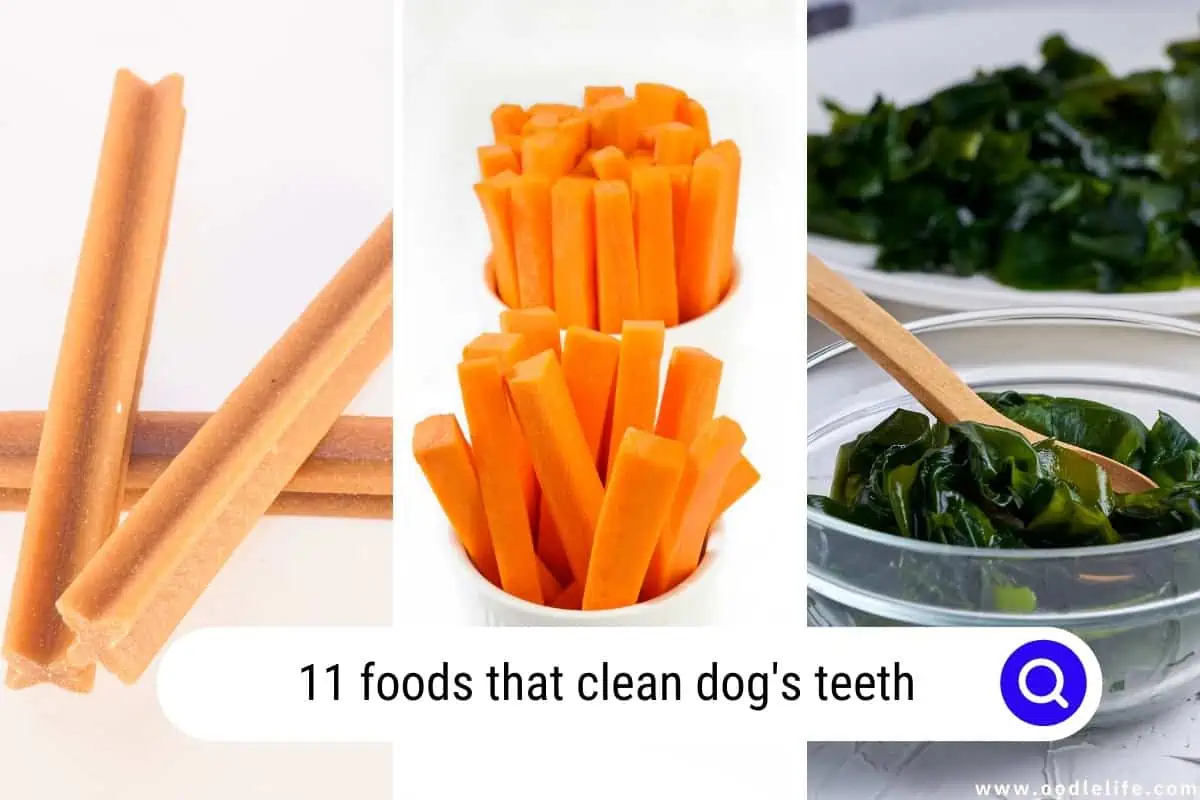
Fortunately, there are several ways we can help our dogs stave off dental disease. In this blog post, we’ll look at all the tooth-friendly foods that you can give your dog as well as what else you can do to make sure your pooch’s mouth stays squeaky clean. And as a bonus, no more doggy breath!
1. Dental Sticks
Commercially available dental sticks are an easy and effective way to keep your dog’s teeth sparkling clean. Dental sticks come in a wide variety of flavors and textures that appeal to dogs, making them convenient and fun.
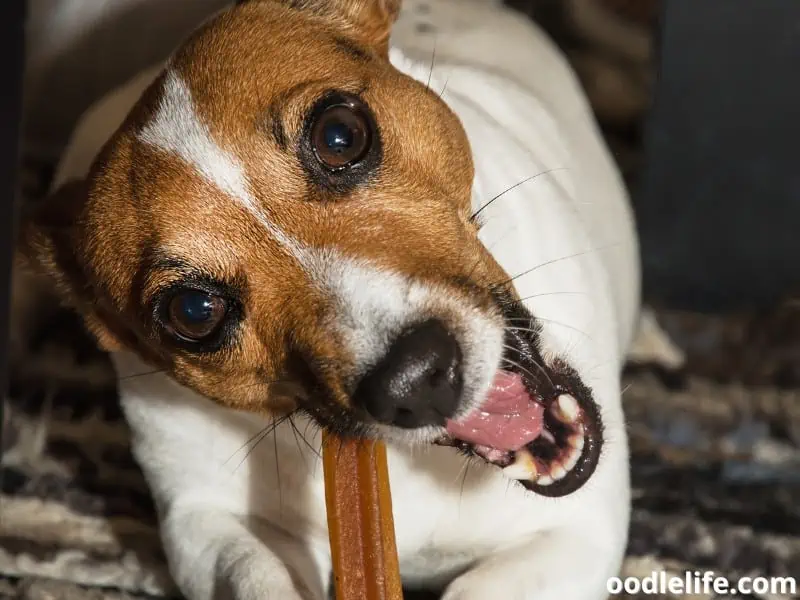
Studies have shown that regularly using dental sticks helps reduce plaque accumulation, control bad breath, and decrease gum inflammation. Additionally, they’re packed with nutrients that are beneficial to canine mouths.
2. Raw Bones
Providing your dog with raw bones is an efficient way to help keep his teeth clean and healthy. Not only are bones easier to find than more expensive commercial products, but they are also safer for your pup since they are composed of natural materials.
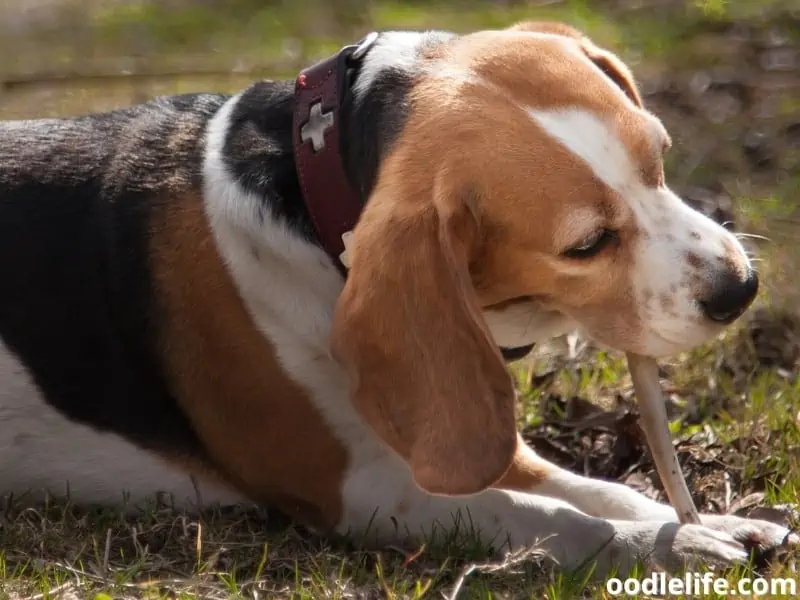
Common raw bones include pig’s ears, beef knuckles, lamb leg bones, femur bones, and marrowbones; these items provide many essential nutrients for your pup in addition to cleaners his teeth. Raw bone consumption incorporates the necessary act of chewing, which helps to scrape off any plaque buildup on the canine’s teeth while strengthening the jawbone.
3. Carrot Sticks
Packed full of nutrients like vitamin A and antioxidants, carrot sticks will be a wonderful way to clean your dog’s teeth, IF they go for it! Carrots are usually not any dog’s snack of choice but if your dog likes them, you’re in luck!
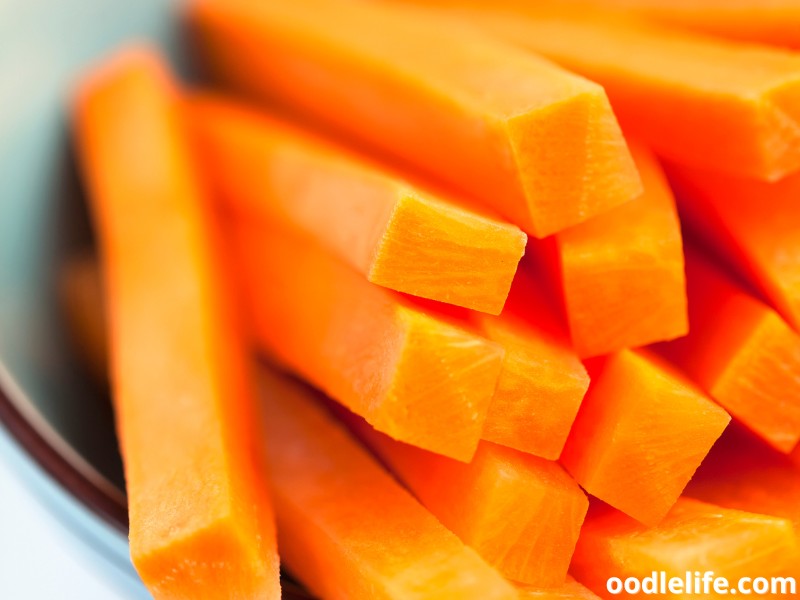
A great way to keep your pup’s chompers sparkling clean is to give them carrot sticks. Carrots are a crunchy treat and act like a natural toothbrush, as they help scrape plaque away when chewed on. They help refresh the breath and provide an extra dose of vitamins.
Best of all, they’re pretty inexpensive and quite easy to find in most grocery stores!
4. Fruit Slices
Many dogs won’t eat fruits, but if you’re lucky, your dog might be a fruit-taholic. Fruits have natural components that help to remove tarter build-up and keep bacteria at bay, helping to reduce the risk of gum inflammation or infection.
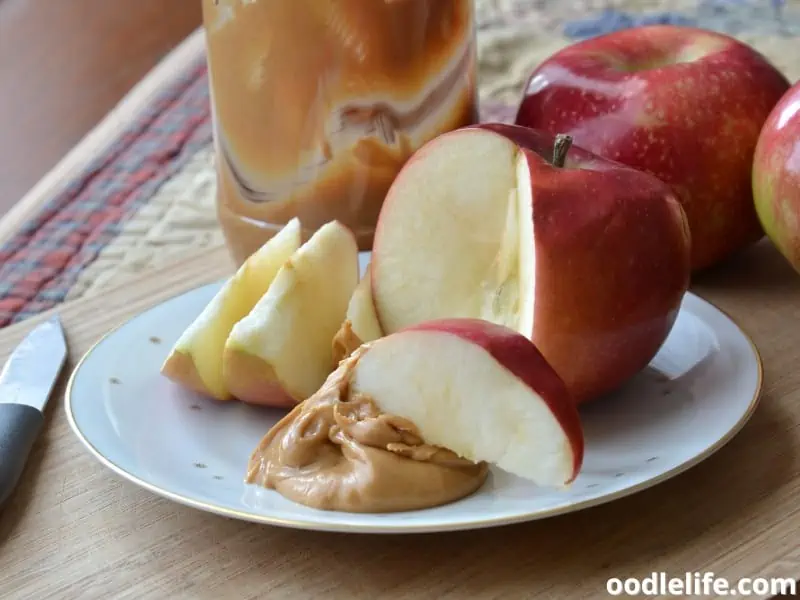
They also promote saliva production which helps to give teeth a deeper cleanse than simply brushing directly. Furthermore, adding fruits to your pup’s diet can encourage them to chew more regularly, which helps the cleaning process in removing plaque and bacteria from the surface of their teeth. Consider adding apples, bananas, or pears to your pooch’s daily meal plan.
5. Kelp
Kelp is a type of seaweed that has multiple health benefits for teeth and gums, particularly when taken as a supplement. It contains essential vitamins and minerals such as calcium, phosphorus, and magnesium, which promote strong teeth and bones.
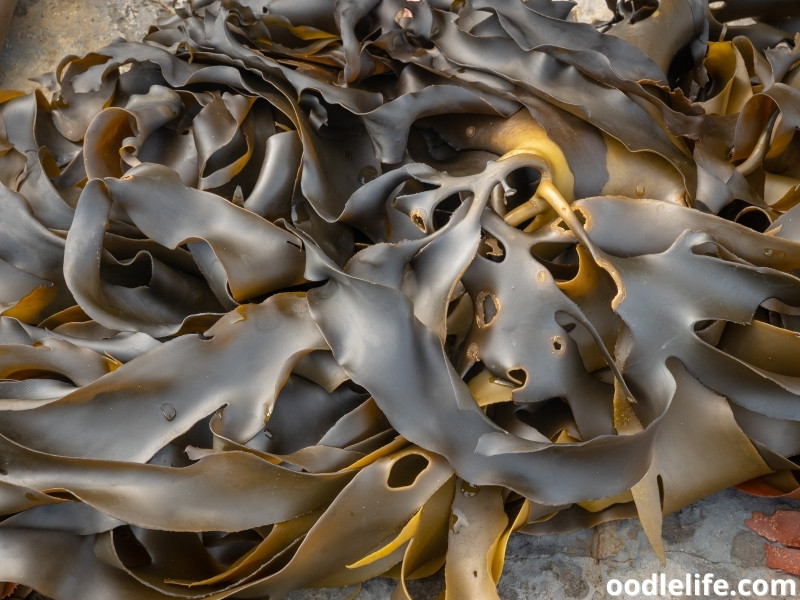
Furthermore, kelp has anti-inflammatory properties which help reduce inflammation in the mouth and throughout the body. Additionally, it provides an abundance of antioxidants that can protect cells from oxidative damage caused by free radicals, thus aiding the prevention of periodontal disease. If your dog won’t chew on dried kelp, you can try getting a supplement and adding some powder to their meals.
6. Omega-3 Fatty Acids
Omega-3 fatty acids are essential when it comes to maintaining healthy teeth and gums. They can help reduce the risk of tooth decay, gum disease, and cavities. Since they reduce inflammation, they also aid in the prevention of swelling of the gums, which can be a telltale sign of periodontal disease.
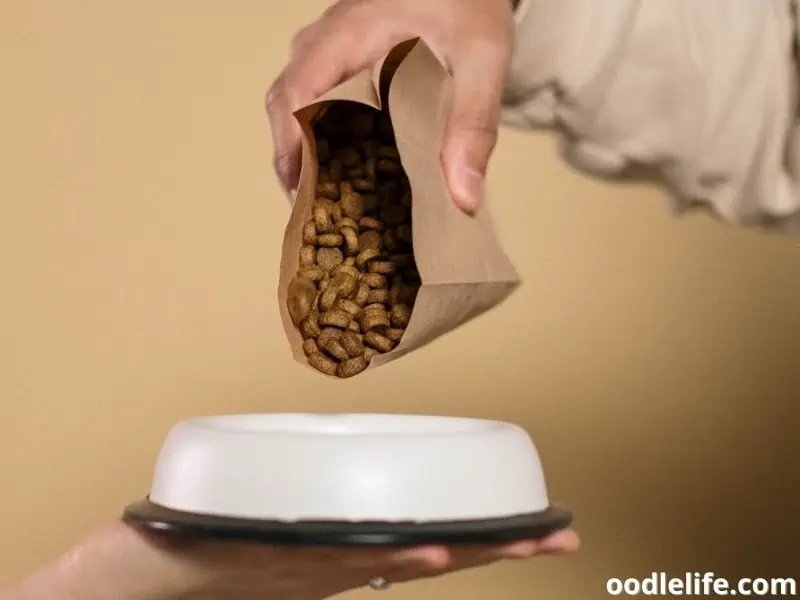
You can look for dog food brands that contain Omega-3 or you can add it to your pooch’s meals as a supplement. Look for ingredients such as salmon, tuna, and flaxseed that are rich in this potent nutrient.
7. Coconut Oil
Coconut oil has recently exploded onto the dental health scene and it has been shown to have natural antiseptic and anti-inflammatory properties, making it an effective remedy for dental problems.
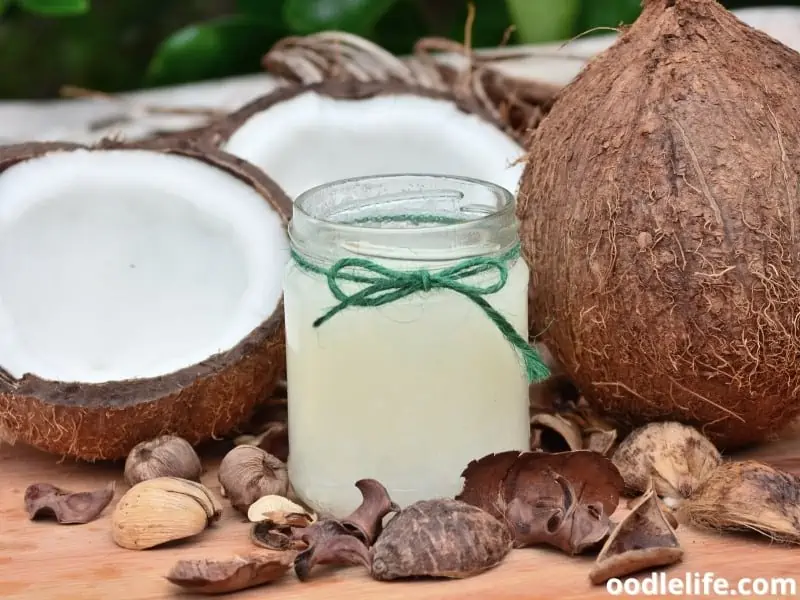
Not only does this make it great for treating existing dental issues, but regular use of coconut oil is thought to reduce the amount of plaque buildup on teeth, reducing the chances of your dog developing new oral health problems.
You can try adding coconut oil to your dog’s food or coat their chew sticks with the oil if they like the taste.
8. Dill
Dill is earning a new reputation as an effective herb for promoting dental health. Dill can reduce inflammation caused by plaque buildup, making teeth and gums healthier and more resistant to bacteria attacks.
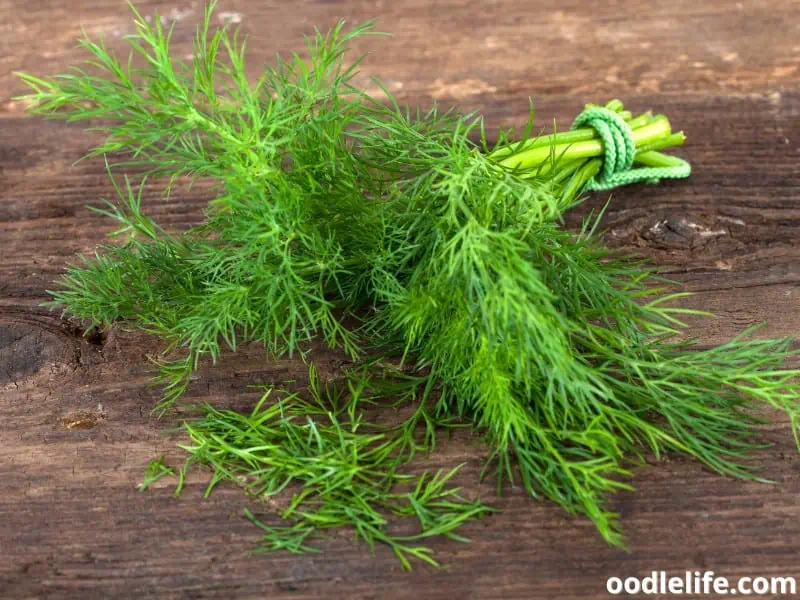
It’s also been known to naturally stop cavities from forming or even help reverse existing damage from cavities. Scientists believe the active compounds in dill are what allow it to fight bacteria and reduce inflammation. Try adding a small amount of smushed dill to your dog’s meal each day and see if they’ll go for it. If not, you can always try supplements.
9. Tooth-Friendly Kibble
You are what you eat, and it is true for our furbabies too! Pick the brand of kibble wisely. Several manufacturers have tooth-friendly kibble with added nutrients.
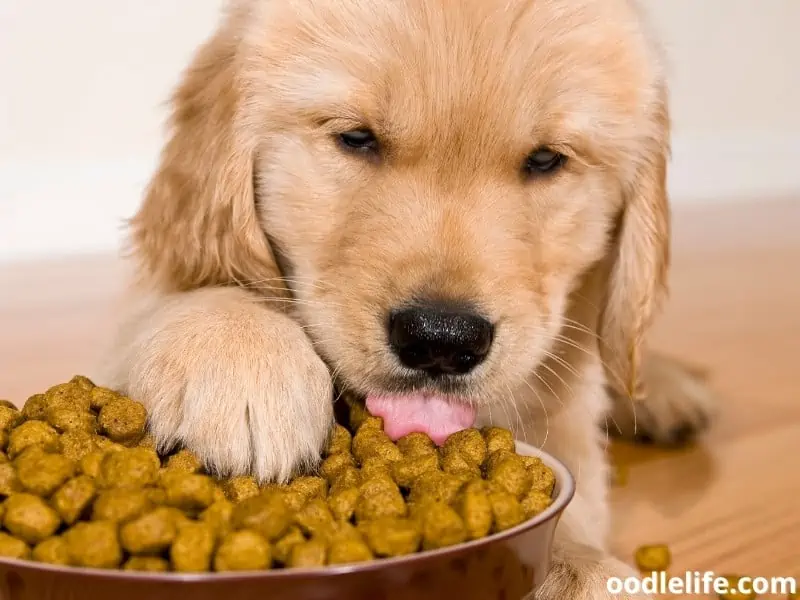
Also, try going for larger pieces of kibble so your dog will have to spend more time chewing, which means they are effectively cleaning their teeth.
Make sure that the kibble size you choose doesn’t pose a choking hazard, and check with your veterinarian if you are intending to switch kibble.
10. Yogurt
Yogurt is a delicious and nutritious snack that can have many positive health benefits for your dog, including improved dental health. Made from natural ingredients such as milk proteins, yogurt contains calcium and probiotics which aid in preventing harmful bacteria from developing.
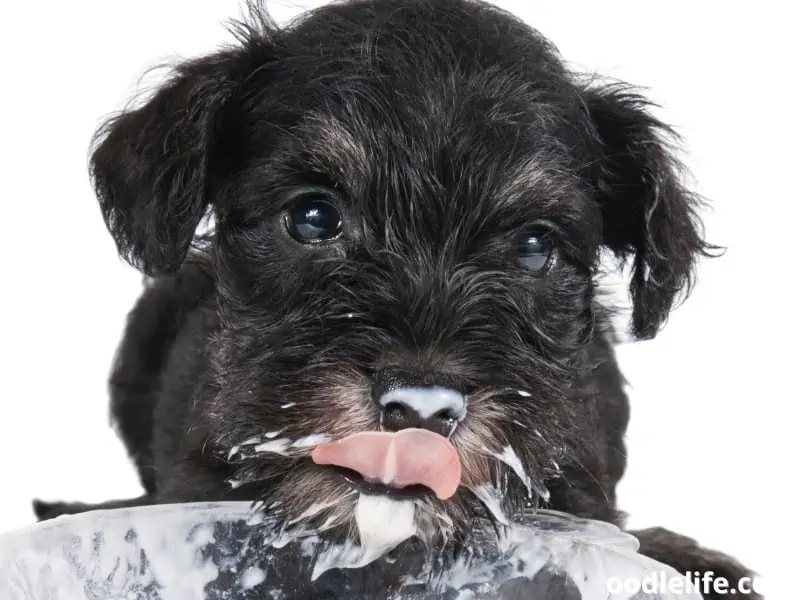
Calcium works to strengthen and repair a dog’s teeth and gums, helping to prevent tartar build-up. The probiotics found in yogurt support your dog’s digestive system, aiding in the absorption of vitamins and minerals important for healthy teeth and gums.
Yogurt also helps freshen bad breath caused by plaque or tartar build-up on your pup’s pearly whites. You can consider adding small amounts of plain non-fat yogurt to your dog’s food or serve it as a tasty treat to ensure better canine dental health.
11. Grapefruit Seed Extract
Grapefruit seed extract is a natural way to help keep your dog’s mouth and teeth clean. It has powerful antibacterial, antiviral, anti-fungal, and anti-inflammatory properties that make it an ideal supplement to support dental health in your beloved pet.
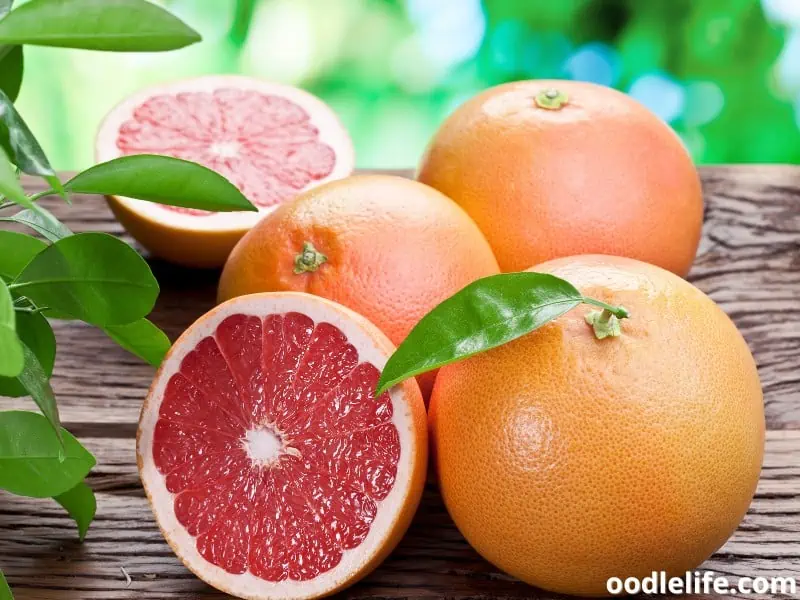
Grapefruit seed extract does not require any special equipment or techniques to benefit your canine companion – simply adding it to their food or water is all you need to do! It can help reduce plaque build-up and tartar, ensuring that your dog’s breath remains pleasant and their teeth stay healthy.
How Else To Care For Your Dog’s Teeth?
These teeth-friendly foods are only part of what should make up your dog’s dental care routine. In addition, you can incorporate these good habits!
Brushing Your Dog’s Teeth
The best way to take care of your dog’s teeth is by brushing them regularly. Brushing their teeth removes plaque and tartar buildup that can lead to periodontal disease and other dental issues. Start by investing in a pet-specific toothbrush and toothpaste.
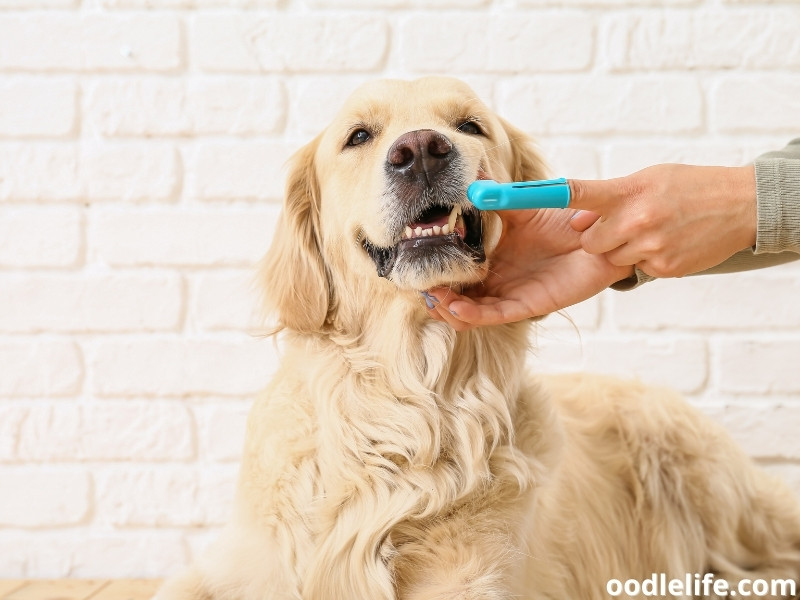
It may take some time for your pup to get used to the process, but with patience and consistency, it will become routine.
Regular Dental Checkups
In addition to brushing their teeth regularly, it’s important to take your pup for regular dental checkups at the vet. This will allow the vet to spot any potential problems before they become serious, like cavities or gum disease. During these checkups, the vet will also clean and polish their teeth which helps remove plaque buildup that regular brushing can miss.
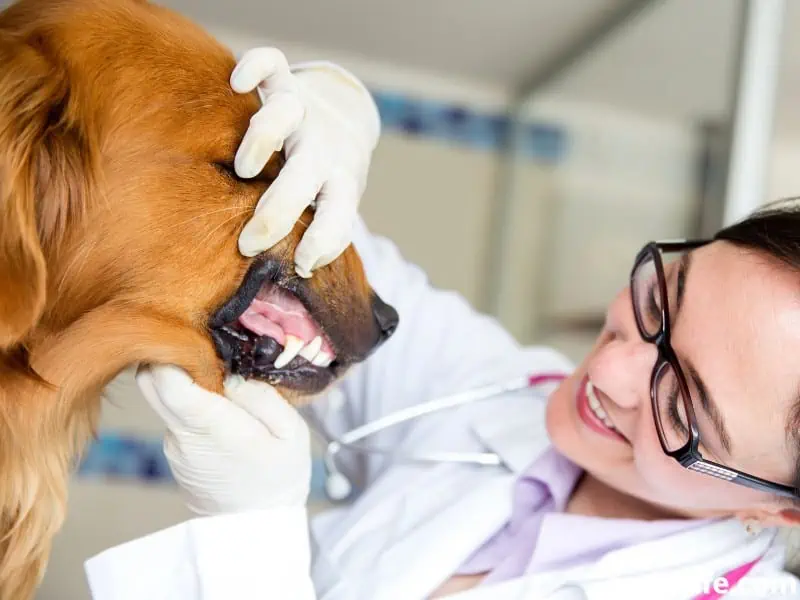
Final Thoughts
As a responsible dog parent, taking care of your dog’s dental health is essential. Poor oral hygiene significantly impacts your dog’s overall well-being, causing pain and discomfort that can be avoided with regular teeth cleanings and brushing.
In addition, neglecting oral care could lead to tooth decay and gum disease, which can decrease their lifespan by as much as two years. Not only is regular dental care important for the prevention of diseases, but it can also help detect underlying health issues early on.
So feed your dog plenty of these foods to help their mouths stay doggy-breath-free and healthy! In addition, be sure to brush your dog’s teeth regularly and get a professional to inspect the state of their dental health every once in a while.